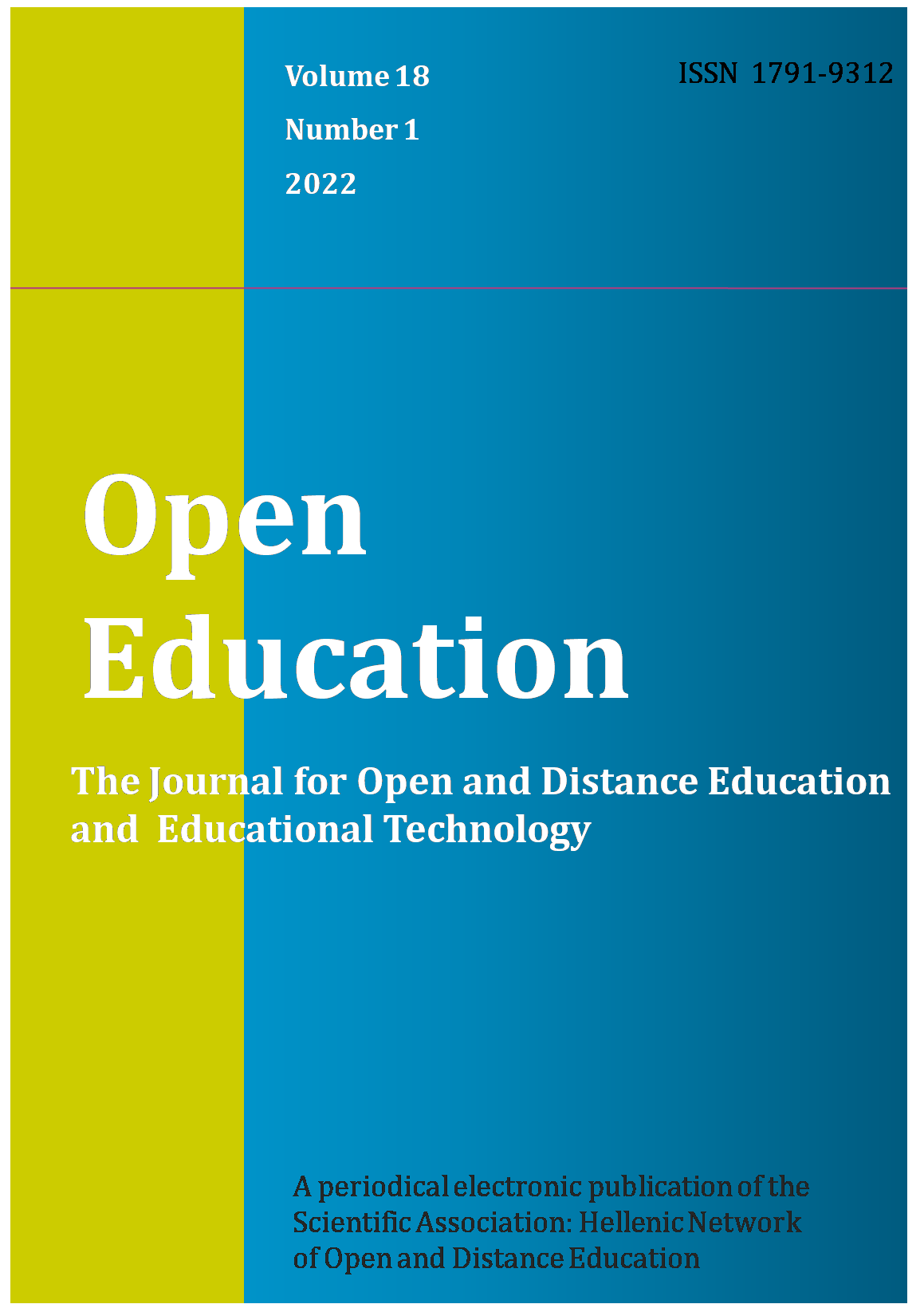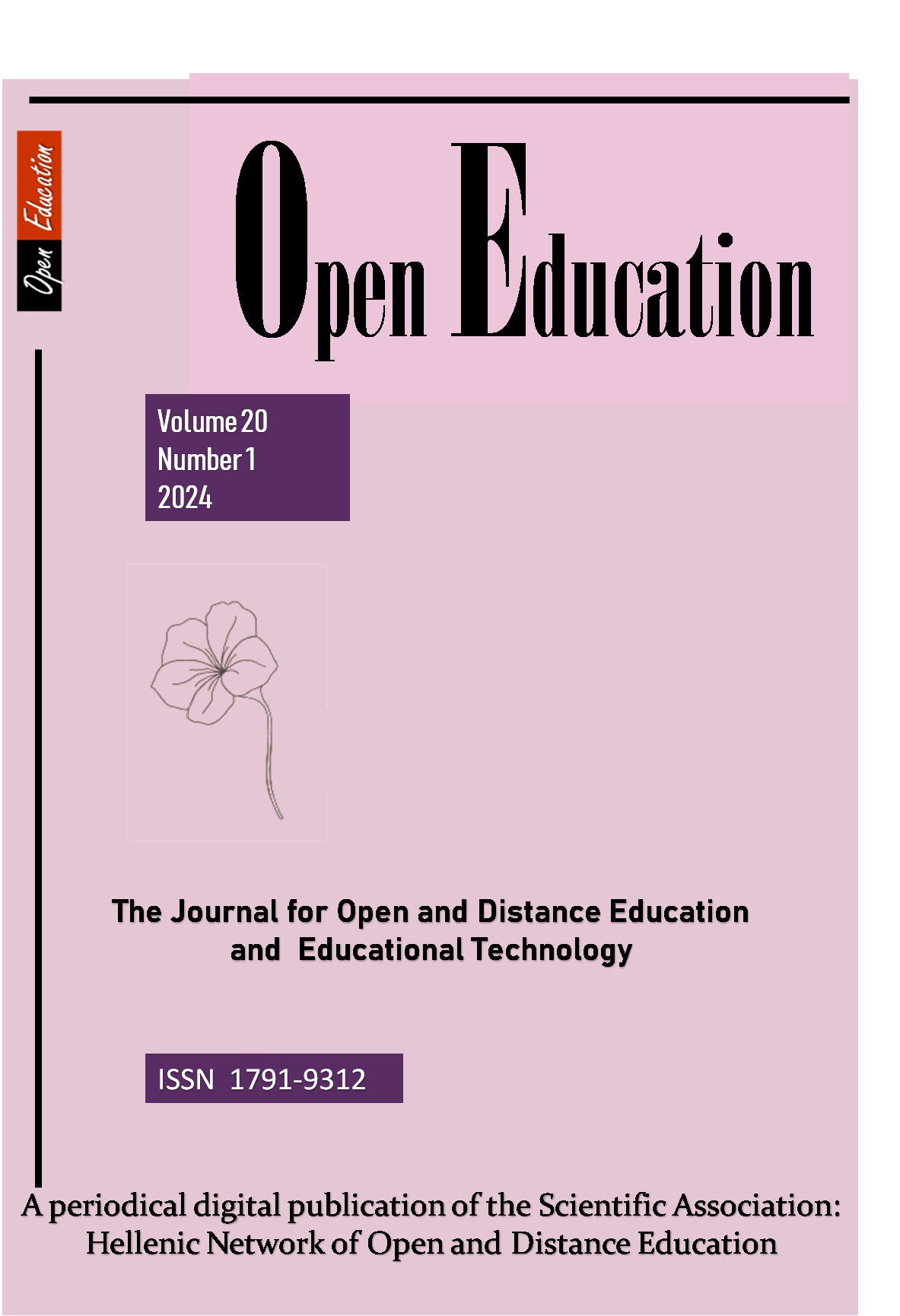Distance Education in the COVID-19 era: The example of Greece and the international opportunity to transition to the Open School of Inquiry Based Learning, Collaborative Creativity, and Social Solidarity
Abstract
This paper reviews recent reports about the implementation of Distance Education during the Covid-19 pandemic in Greece and worldwide. In particular, it aims to determine how Educational Systems reacted to the transition to a new home-based learning environment focusing on the Greek Educational System and its plans to address the current situation. Specifically, the emerging framework of Education is outlined.
It can be concluded that Educational Systems responded to the new reality of social distancing similarly worldwide. The emphasis was mainly on ensuring equal access to Distance Education environments and remote technological support to all those involved in the educational process. This was also the case in Greece, where accessibility issues were primarily met despite existing difficulties. However, the pedagogical dimension of Distance Education was absent.
Based on these conclusions, education policy developers should consider transitioning from Phase A of Distance Education: Remote Emergency Support, to Phase B: Pedagogical Dimension, and, ultimately, to Phase C: Transition to the Open School of Inquiry Based Learning, Collaborative Creativity and Social Solidarity.
Article Details
- How to Cite
-
Anastasiades, P. (2022). Distance Education in the COVID-19 era: The example of Greece and the international opportunity to transition to the Open School of Inquiry Based Learning, Collaborative Creativity, and Social Solidarity. Open Education: The Journal for Open and Distance Education and Educational Technology, 18(1), 6–25. https://doi.org/10.12681/jode.28909
- Section
- Section 1
Copyright Notice
Authors who publish with this journal agree to the following terms:
Authors retain copyright and grant the journal right of first publication with the work simultaneously licensed under a Creative Commons Attribution Non-Commercial License that allows others to share the work with an acknowledgement of the work's authorship and initial publication in this journal.
Authors are able to enter into separate, additional contractual arrangements for the non-exclusive distribution of the journal's published version of the work (e.g. post it to an institutional repository or publish it in a book), with an acknowledgement of its initial publication in this journal.
Authors are permitted and encouraged to post their work online (preferably in institutional repositories or on their website) prior to and during the submission process, as it can lead to productive exchanges, as well as earlier and greater citation of published work.




